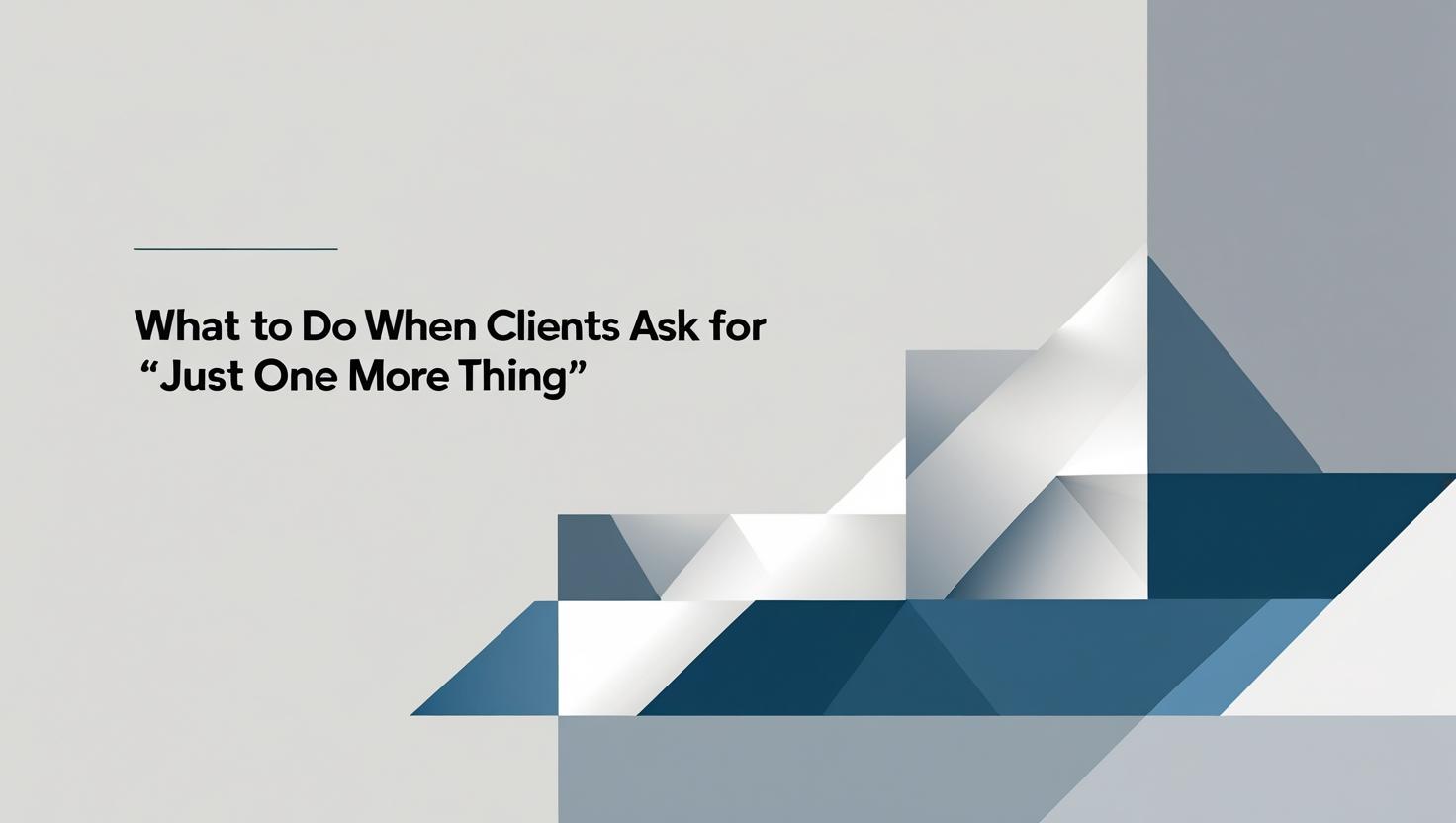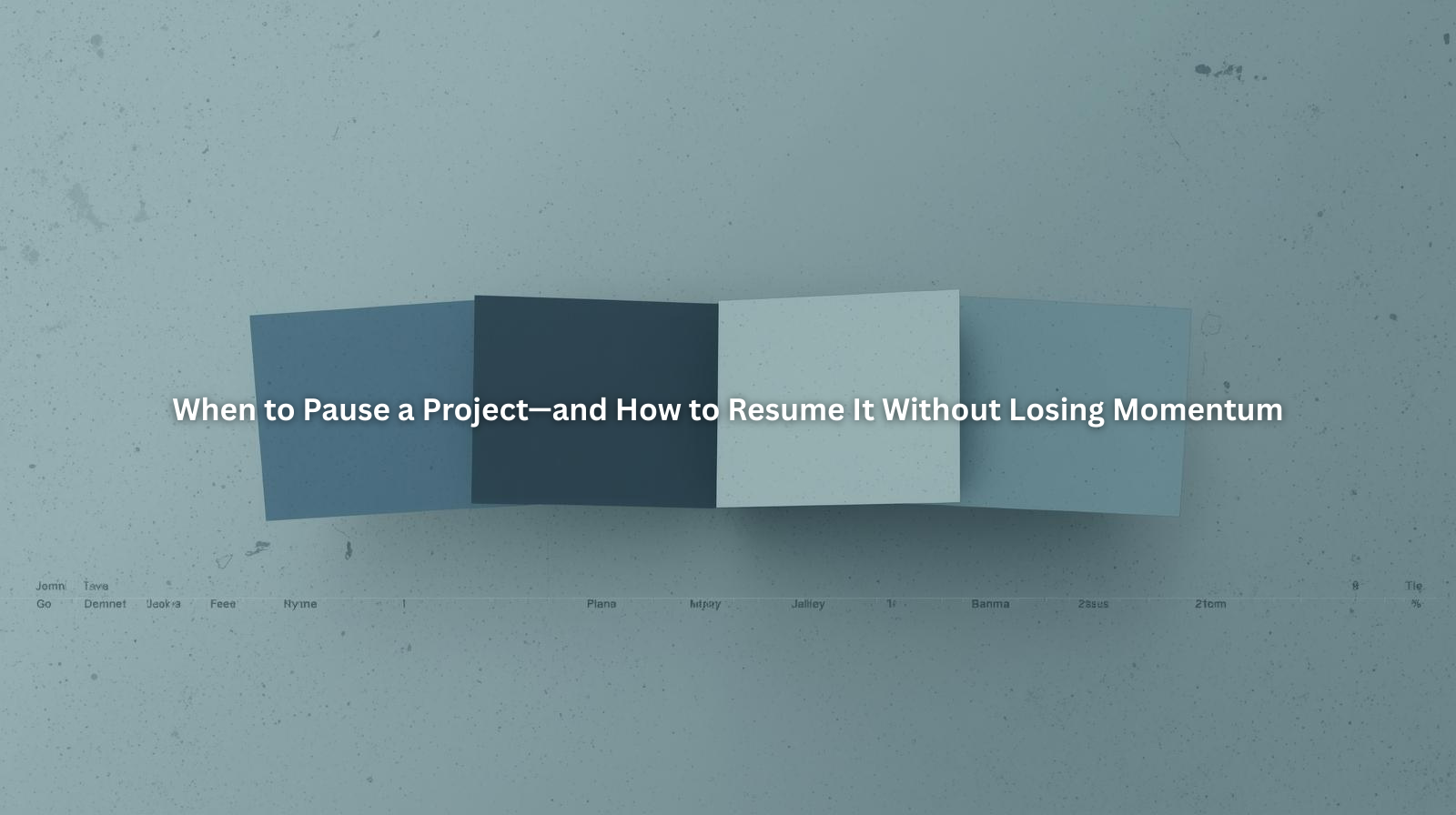What to Do When Clients Ask for “Just One More Thing”

That One Extra Request
You’re wrapping up the project. The files are delivered, the deadline is approaching, and you’re almost ready to hit send on the final invoice. Then it happens.
“Would you mind just adding one more little thing?”
It’s always just one more tweak, one more version, one more idea they forgot to mention earlier. It sounds harmless enough. And maybe it is. But when it starts to happen every time, or the “just one thing” turns into four, that’s when it becomes a problem.
This moment—where you decide how to respond—is one of the most defining points in your freelance business. Because how you handle it shapes not just this project, but how your client sees you, respects your time, and communicates with you going forward.
The Line Between Helpful and Overextended
As freelancers, we want to be seen as flexible, easy to work with, and invested in our clients’ success. And we genuinely want to help. So when a client asks for something small and extra, it’s tempting to say yes without hesitation. You might even think, “It’s not a big deal—I’ll just knock it out.”
But every time you say yes to something beyond scope without pause, you subtly shift the boundaries of the project—and the tone of the relationship. The client starts to believe that requests don’t need to go through any kind of process. The defined structure begins to dissolve. And you, unintentionally, become someone who doesn’t protect your own limits.
The goal isn’t to say no to everything. It’s to create space where you can assess the request, determine how it fits into the project, and respond with clarity instead of obligation.
Responding with Clarity (and Kindness)
When a client asks for “just one more thing,” you don’t have to immediately reject it or roll your eyes. Often, all they need is a gentle reminder that you’re working within a structure—and that their request may require a shift in scope, time, or cost.
You might say:
“Thanks for sending that over! This looks like something we could absolutely explore. Since it’s outside of our original scope, I can provide a quick estimate and turnaround if you’d like to include it as an add-on.”
This kind of response does a few important things:
You acknowledge the request without judgment.
You create a pause before doing the work.
You position yourself as a collaborator, not a task-taker.
It also reminds the client that your time and work have value, and that additions aren’t free simply because they’re small. That’s not rude or difficult—it’s professional.
When It's Genuinely Tiny (And You Want to Say Yes)
There will be times when the request really is small—a single line of text, a quick export, something that takes less time to do than to write an email about. And sometimes, saying yes is the right call. It strengthens the relationship, shows flexibility, and feels good to do.
The key is to stay conscious about the why. Are you saying yes because it’s a strategic choice? Or are you afraid the client will think less of you if you push back?
Choosing to go above and beyond occasionally is great. But it should be a gift, not a standard. And when you do go the extra mile, it’s okay to signal that clearly:
“Happy to include this one—it’s a quick update. Just wanted to note that anything more extensive may need to be scoped separately.”
This sets the expectation for next time, without making it awkward.
What Happens When You Don’t Set the Boundary
When you consistently say yes to “just one more thing” without pause, you’ll likely start to feel resentful—whether you realize it or not. You’ll stay up late fixing files you weren’t paid for. You’ll drag your feet on final delivery because the scope keeps shifting. You’ll start avoiding the client’s emails.
Eventually, it’s not just about the task. It’s about your energy, your boundaries, and your ability to lead the project.
And that’s why protecting your scope matters. Not because you’re trying to nickel-and-dime your client—but because you’re protecting the flow of the work and your ability to do it well.

Keeping Scope Clear from the Start
So much of this can be prevented with a clear scope and a strong process.
When clients know exactly what’s included, how many revisions they get, and what to expect from each phase, they’re far less likely to spring surprise requests on you. Or if they do, they’ll know it’s an addition—not a demand.
That’s where a tool like ProjectBook.co helps. You can attach scopes to projects, outline deliverables clearly, track revisions, and even flag tasks as “Out of Scope” before they start eating into your energy.
Final Word
Freelancing is full of “just one more thing” moments. They’re small, they’re sneaky, and they can slowly erode your time, your boundaries, and your business if you’re not careful.
But when you create space to pause, assess, and respond with clarity, you take back control of the conversation—and your schedule. You become a partner in the project, not an assistant to every whim.
Protecting your time doesn’t make you difficult. It makes you sustainable.
And with ProjectBook.co, you can keep every project—and every request—clear, organized, and on track.


